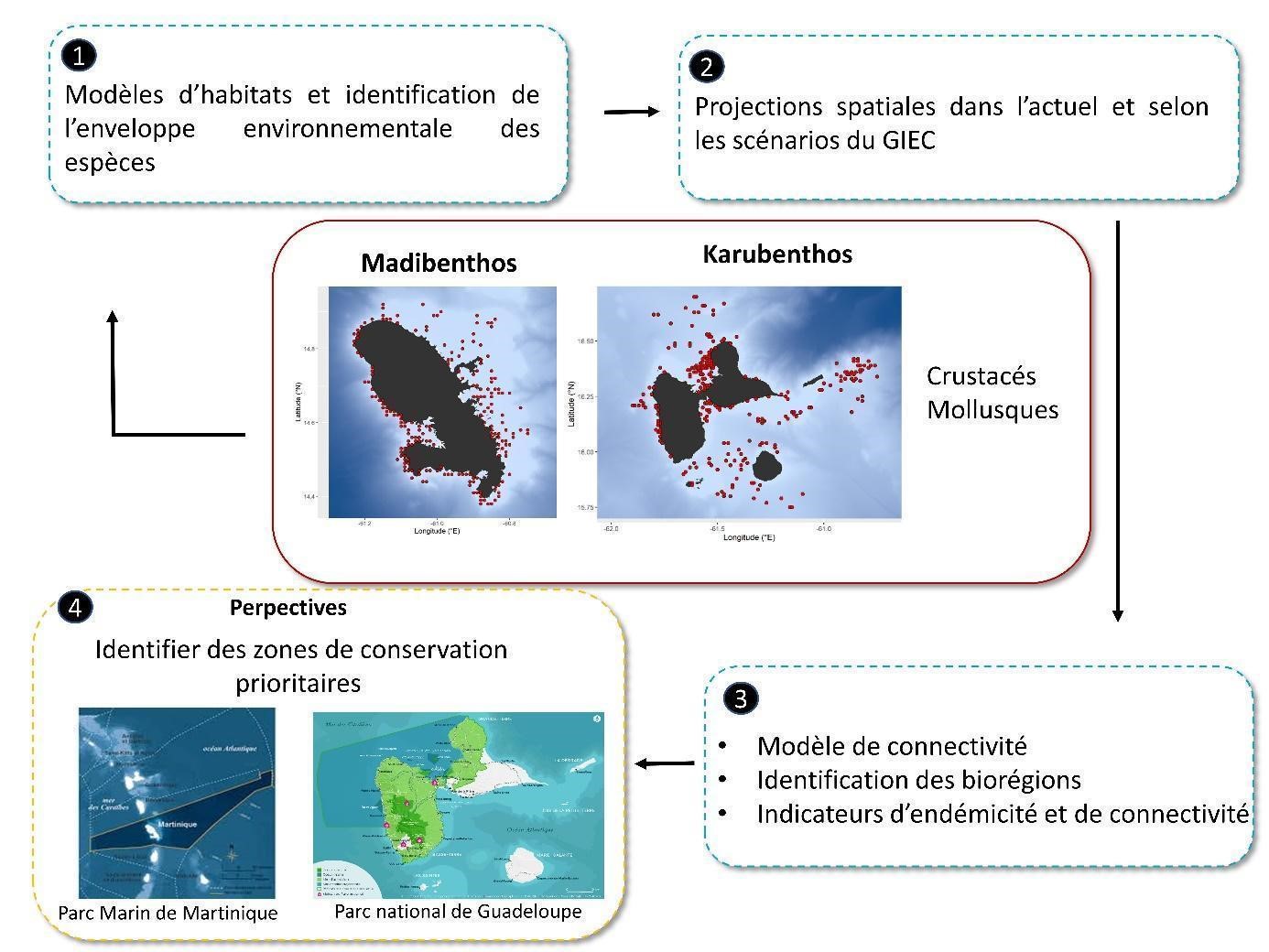MOSCECO
People involved
Modélisation, scénarisation et connectivité de la biodiversité côtière des Antilles françaises
Tropical coastal marine ecosystems protect coastal communities from flooding and erosion and provide ecosystem services. Due to their isolation, the coastal biodiversity of islands such as Martinique and Guadeloupe is highly diverse and endemic, but little is known about biogeographic patterns. These marine ecosystems are nevertheless under the influence of multiple stress factors (urbanisation, exploitation, climate change). The way in which the ecological compartments are organised and connected and how biodiversity patterns are constrained by the abiotic environment are still poorly understood. However, this is a prerequisite for the implementation of conservation strategies. The scientific challenges addressed by the MOSCECO research project are multiple. The first scientific barrier to be overcome will be to assess the spatial patterns and connectivity of species assemblages in the Martinique National Marine Park and the Guadeloupe National Park. Ecological indicators of endemicity, connectivity and richness will be used to identify biodiversity "hot spots" and their relationships. In a second phase, the impact of climate change on distribution patterns and areas of interest will be quantified in order to identify sensitive areas that require special attention. The originality of the project lies in the use of the robust taxonomic database resulting from the Madibenthos and Karubenthos expeditions conducted by the MNHN in Martinique (2016) and Guadeloupe (2012) respectively, with : (1) tens of thousands of specimens collected, (2) several sampling gears deployed at the same location ensuring the capture of the whole biodiversity, (3) the focus on little-known taxa (Molluscs, Crustaceans) compared to the "flagship" taxa (corals or fish) commonly used in conservation plans.
The MOSCECO project:
- Contribute to a more complete understanding of biodiversity patterns in tropical ecosystems
- Question traditional conservation strategies (mainly based on umbrella and flagship species) on their relevance to these unique marine ecosystems
- Help improve future monitoring and conservation actions in tropical regions.
Funding: Office Français de la Biodiversité (OFB)
Project coordinator:
- Laure CORBARI (MNHN, ISYEB)
- Salomé FABRI-RUIZ (Ifremer, Nantes)
- Eric GOBERVILLE (Sorbonne Université-BOREA)
BOREA contact: Eric GOBERVILLE
- Philippe Bouchet (MNHN, ISYEB)
- Jessica Crillon (OFB/PNM Martinique)
- Jeanne de Mazières (OFB/PatriNat)
- Guillaume Dirberg
- Fanny Lepareur (OFB/PatriNat)
- Didier Merle (MNHN, CR2P)
- Office Français de la Biodiversité


